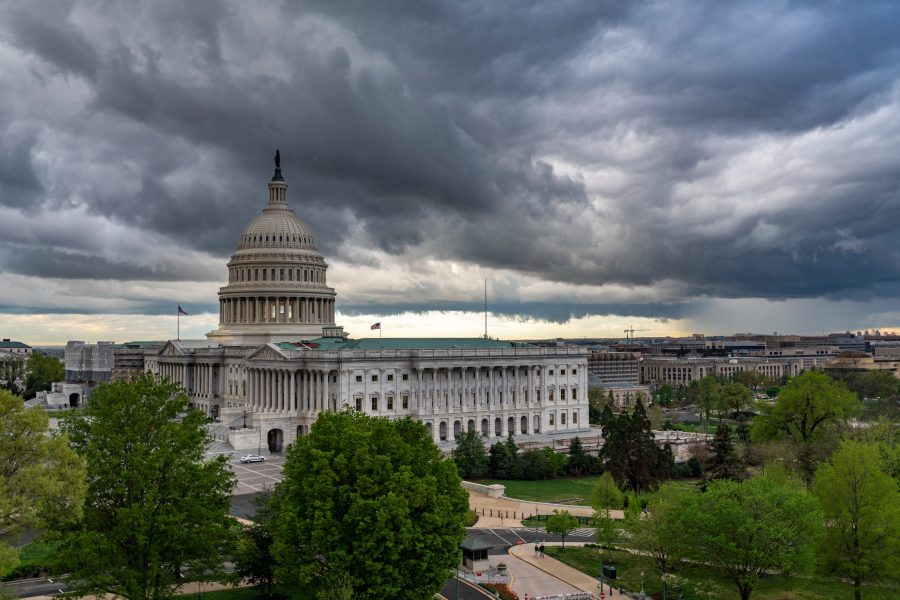Members of Congress have set up a collision course in the must-pass National Defense Authorization Act, fielding opposing language in the law’s House and Senate versions that make the future of a space National Guard component unclear with 28 days remaining before the start of the new fiscal year.
The Senate version of the NDAA simply renames the Air National Guard the “Air and Space National Guard,” while the House version would create a new “Space National Guard.”
Colorado representatives Doug Lamborn (R) and Jason Crow (D) cosponsored the amendment proposing to establish the Space National Guard that won approval in the House on Sept. 1.
“There has been widespread and ongoing interest in and support for creating a Space National Guard,” Lamborn told Air Force Magazine in a statement, noting that Colorado has more National Guard units and personnel conducting space operations than any other state.
“After waiting for a plan for two years, we decided to act,” he added. “The Space National Guard will bring operational mission readiness and provide equipped, surge-to-war capabilities that are vital for our nation.”
The House amendment would realign the National Guard units already working on space missions under the Space National Guard.
National Guard Association spokesman John Goheen told Air Force Magazine that creating a Space National Guard is the best decision for the Guard, Space Force, and national security.
“It makes the most sense to give the Space Force a surge capability with a reserve Space National Guard,” he said.
“The space professionals, if they’re not already in the Space Force, they’re moving to the Space Force. But right now, the space professionals in the National Guard have been left behind,” he explained, noting that space Air National Guard units in eight states no longer have a liaison to the appropriate space professionals they once worked with.
Those Airmen and units moved to the Space Force long ago.
Goheen says simply renaming the Air National Guard will not fix the problem. A new National Guard component must be created with a chain of command linking to the correct Space Force personnel.
“It’s not good for the professional development or their continued development to keep them in the Air Guard,” he said.
The Lamborn/Crow amendment would not explicitly fix the chain of command issue but instead leave the responsibility to the Secretary of the Air Force and the National Guard Bureau to stand up the Space National Guard within 18 months.
Lamborn said he expected the cost of the limitation to be “minimal.” The act does not establish a Space Force Reserve. The Air Force and National Guard Bureau are to make a recommendation on creating that reserve component.
Space professionals in limbo
Adjutant General of the Florida National Guard USAF Maj. Gen. James O. Eifert recently told Air Force Magazine that his 114th Space Control Squadron is full of private-sector space professionals from Florida’s historic Space Coast who are waiting for the creation of a Space National Guard.
“We really have to create a Space National Guard because the current relationship is not tenable for a healthy future,” he said. “What we do need is we need to have that direct relationship between the Space Force and the Guardians that are currently in the Air National Guard.”
An estimated 2,000 space professionals are in National Guard units in Alaska, Arkansas, California, Colorado, Florida, Hawaii, New York, Ohio, and Guam.
“Currently, National Guard Bureau and Air Force Reserve personnel are aligned to support the Space Force and remain critical to the space mission performed by the U.S. military,” a Space Force spokesperson told Air Force Magazine.
“The Department of the Air Force continues to work with partners across the Department of Defense, Office of Management and Budget, Air Force Reserve, National Guard Bureau, and Congress to define the way ahead, which will be outlined in a report to Congress,” the spokesperson added.
That report to Congress was due in March and has not yet been made public.
The National Guard Bureau declined to comment on pending legislation since the two NDAA versions must now be hammered out between negotiators.
Goheen says such silence could be a reason why lawmakers do not understand the gravity of the decision before them.
“Once the House and the Senate name their negotiators, we can communicate with those individuals, and they will go behind closed doors and hammer out this in a room,” he said. “I don’t know where ‘Air and Space National Guard’ came from. I don’t know where it came from, but it needs to go away.”
